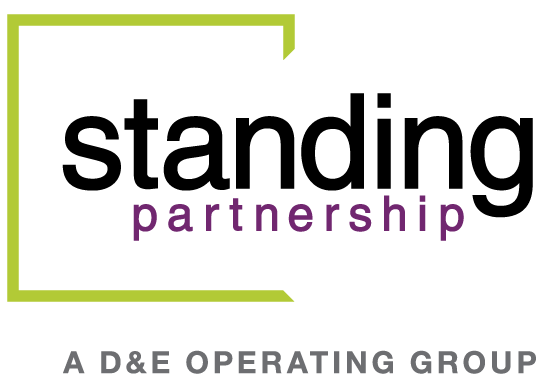Align Your Company’s Award Strategy to Your Business Goals
Having a company award strategy can help you gain customers, highlight your company’s excellent work, showcase diverse and exceptional talent, establish thought leadership, improve company culture and boost recruitment.
Creating an external award program as part of your corporate strategy can be one way to help your company reach its business goals. Winning awards presents the chance to highlight your company’s excellent work, showcase diverse and exceptional talent, establish thought leadership, improve company culture and boost recruitment. Industry and professional associations, media outlets, government organizations or other businesses may offer award opportunities in your industry or region. But which ones should you pursue? How do you manage the resources to apply for awards? Even more importantly, if you receive an award, how do you leverage this recognition?
Building a Business Award Strategy
Designing an award strategy before submitting is crucial for your company’s resource management and overall business strategy. It’s important to be intentional with your award submissions to save time, money and capacity. Before you apply, look at your corporate goals and strategy and decide how your award submissions align with these possible objectives:
- Gain national (or regional/local) recognition as a leader in a certain space (e.g., technology innovation, sustainability, DE&I, patient care, professional excellence, community impact).
- Improve employee retention and morale by offering recognition for professional accomplishments or community involvement.
- Attract prospective employees who want to work for companies with a good reputation.
- Highlight new products, services or employees for current or potential customers.
With clear objectives, it will be easier to determine which opportunities are worth pursuing.
Discovering and Navigating Award Opportunities
Determining available awards that align to your objectives is the next step. Here are four methods to find the best award opportunities.
- Professional/industry organizations: Many professional organizations host annual awards. Your employees may belong to these associations, which often announce guidelines (and application deadlines) in newsletters, social media posts and other correspondence. Sometimes, membership—as a company, the nominator, or nominee—is a requirement to apply for the award.
- Competitors: One of the best places to find awards is to study which ones your competitors have won. Check your competitors’ websites for press releases or other announcements to find out who is recognizing them.
- Company history: If you are new to the company, ask for a history of award submissions and wins. Many awards were put on hold due to the pandemic, so websites may be outdated, even if plans are moving forward for the next award cycle. Reach out to a known contact about the current award program as a first step. An award history list will also show if your company or an individual won a specific award in the recent past, so you know not to submit the same information or candidate again.
- Online search: Search online for award opportunities that are in your industry or your community and fit your objectives. A marketing and communications consultancy firm can help you search for honors that focus on excellence in your targeted area.
To choose the best-suited award opportunities, read guidelines carefully for these three criteria, remembering that each submission should fit your award strategy:
1) Intensity: Intensity refers to the amount and type of information your company must include in the award submissions, such as an essay explaining why you are the best candidate, answers to specific questions, external and internal letters of support, detailed CVs, supporting data, video entries and more. Read carefully to assess what the nomination entails, who in your company has the information needed and how much time will be required. Then consider if your team has the capacity to work on the entry. Many award programs fizzle out because internal teams do not have the bandwidth to manage the workload that comes with award submissions, so bringing in external consultants can help fill the gap and keep you focused on the prize.
2) Budget: You may need an award budget for expenses, such as the entry fee, agency support or a virtual assistant to create or collect the pieces for the submission package. You may have to balance your ambitions with your budget, especially if resources are limited.
3) Deadline: If there is an intense application process and the deadline is fast approaching, then this award may not be a good selection for the current year. If you decide to pursue an award program, be sure to develop an awards’ project management calendar to work ahead for the next year’s submission process.
Should you submit to national or well-known awards? That depends on your business goals. You might be a national or global company that needs to demonstrate your commitment to the communities you operate in, or you might be an up-and-coming business that is expanding and needs national recognition to advance to the next level. In those cases, these well-known awards can help boost your credibility and reputation in the industry.
Awards run by local organizations or professional associations can be a nice stepping stone for recognizing employees or for businesses that have a more localized customer base. Everyone wants to win a Nobel Prize, but it may be just as meaningful to win your community’s best service award if you are a regional company serving local clients or trying to build your local workforce.
Should we enter company, team or individual awards? Here are considerations for each type:
- Company or product awards attract customers and a talented workforce. Your company name and brand become associated with the award.
- Team awards recognize a particular department you want to draw attention and focus (e.g., DE&I; product development; human resources).
- Individual awards emphasize an employee’s talent and expertise among their peers and also show your company is a great place to work and grow.
Who should manage an award program? Often an employee from the corporate communications team works closely with other teams, such as human resources, product development or leadership, to identify nominees and establish organization and routine, such as:
- Create a timeline with milestone dates and detailed responsibilities for each person involved with the award.
- Communicate this timeline and associated work to the team.
- Keep track of milestones and send out reminders to stay on track for the deadline.
- Use a checklist to double check completion of the award’s package.
- Record each submission on an internal spreadsheet for up-to-date notes on entries and results.
Sharing Award Recognition with Your Stakeholders
You won the award – congrats! However, there is one final step that’s crucial to your strategy: announcing the win to support your corporate objectives. Here are a few ideas for sharing the good news with others:
- Newsletter: If you have an internal or external newsletter, make sure your award- winning announcement, appropriate photo and award logo/seal are included. Another idea is to publish an interview with the employees who won the award or worked to make the recognition possible. This type of article helps customers get to know employees while also showcasing your company’s talent and expertise in a personal way.
- Social media: Facebook, LinkedIn, X (formerly Twitter) and Instagram are great places to share the award with your community. Create sharable social posts with images, so your employees and customers can spread the word on their channels, too, and possibly attract new clients or customers.
- Paid ads: Publications that run award programs often offer the opportunity to place an ad, which amplifies the win to readers who may be prospective customers or employees.
- Website homepage: Notable award accomplishments should be featured on the homepage of your website. Awards will often come with a digital logo or seal that states, “Best Company for ______” or “Top 10 Company by _______.” Place these on your home page, so current and potential customers see this recognition.
- Press releases and blog posts: If the award is prestigious, you could send out a press release to media outlets. Depending on the award and how your website is designed, you might want to include a story on your blog or news page with more details about the award and your winning entry. Drive your social media posts to this article.
- Email signature: If a digital seal or logo accompanies the award win, ask your employees to put this graphic in their email signatures, making the achievement visible to current or potential customers.
- Old-school office display: If you have an in-person office, display physical awards in high-traffic areas.
One final note: if your company has a new or first-time award strategy, it’s best to start by applying for only one or two business award opportunities during the first year. If your internal teams are stretched too thin, you may also consider hiring an outside marketing firm to help you develop an award strategy and assist with project management. Revisit your award program every year to ensure it supports your company’s goals. If you are contemplating an award program, or have tried one but need help, contact us at inquiries@standingpartnership.com.

